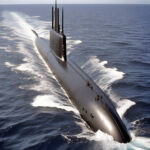Turkish Fast-Fashion Giants Expand Into Frontier Markets
In the realm of fast fashion, Turkish brands are making a significant impact on the global stage. Companies such as LC Waikiki, Koton, and DeFacto have been strategically expanding their reach into frontier markets, where other retail giants like H&M and Zara have yet to establish a strong presence. This strategic move has not only allowed these Turkish brands to gain a foothold in untapped territories but also showcases their ability to adapt and thrive in diverse cultural and economic landscapes.
One of the key reasons behind the success of Turkish brands in conquering frontier markets lies in their astute understanding of consumer preferences and market dynamics. By offering affordable yet trendy clothing options, LC Waikiki, Koton, and DeFacto have managed to cater to the needs of a wide range of customers in countries such as Albania, Uganda, and Mongolia. This approach has enabled them to carve out a niche for themselves and build a loyal customer base in these regions.
Moreover, the expansion of Turkish brands into frontier markets highlights their agility and willingness to take calculated risks. While established players like H&M and Zara have been cautious about entering high-growth yet high-risk markets, Turkish companies have shown a willingness to embrace the challenges and complexities associated with operating in these regions. By doing so, they have been able to gain a first-mover advantage and establish themselves as frontrunners in markets with immense growth potential.
The success of Turkish brands in frontier markets can also be attributed to their focus on localization and adaptation. Instead of imposing a one-size-fits-all approach, companies like LC Waikiki, Koton, and DeFacto have tailored their product offerings and marketing strategies to suit the unique preferences and cultural nuances of each market. This localized approach has resonated well with consumers and has helped these brands build a strong brand identity in regions where global competitors have struggled to gain a foothold.
Furthermore, the expansion of Turkish fast-fashion giants into frontier markets serves as a testament to the growing influence of emerging economies in the global retail landscape. As consumers in these markets become more discerning and fashion-conscious, there is a rising demand for affordable yet stylish clothing options. Turkish brands have been quick to capitalize on this trend by offering quality products at competitive prices, thereby positioning themselves as viable alternatives to traditional fast-fashion players.
In conclusion, the foray of Turkish brands such as LC Waikiki, Koton, and DeFacto into frontier markets represents a significant shift in the global retail industry. By leveraging their understanding of consumer preferences, embracing risk, focusing on localization, and tapping into the potential of emerging economies, these brands have managed to outpace their competitors and establish a strong foothold in previously untapped territories. As they continue to expand their presence and influence, Turkish fast-fashion giants are setting a new benchmark for success in the ever-evolving world of retail.
Turkish, Brands, FastFashion, GlobalExpansion, RetailIndustry












